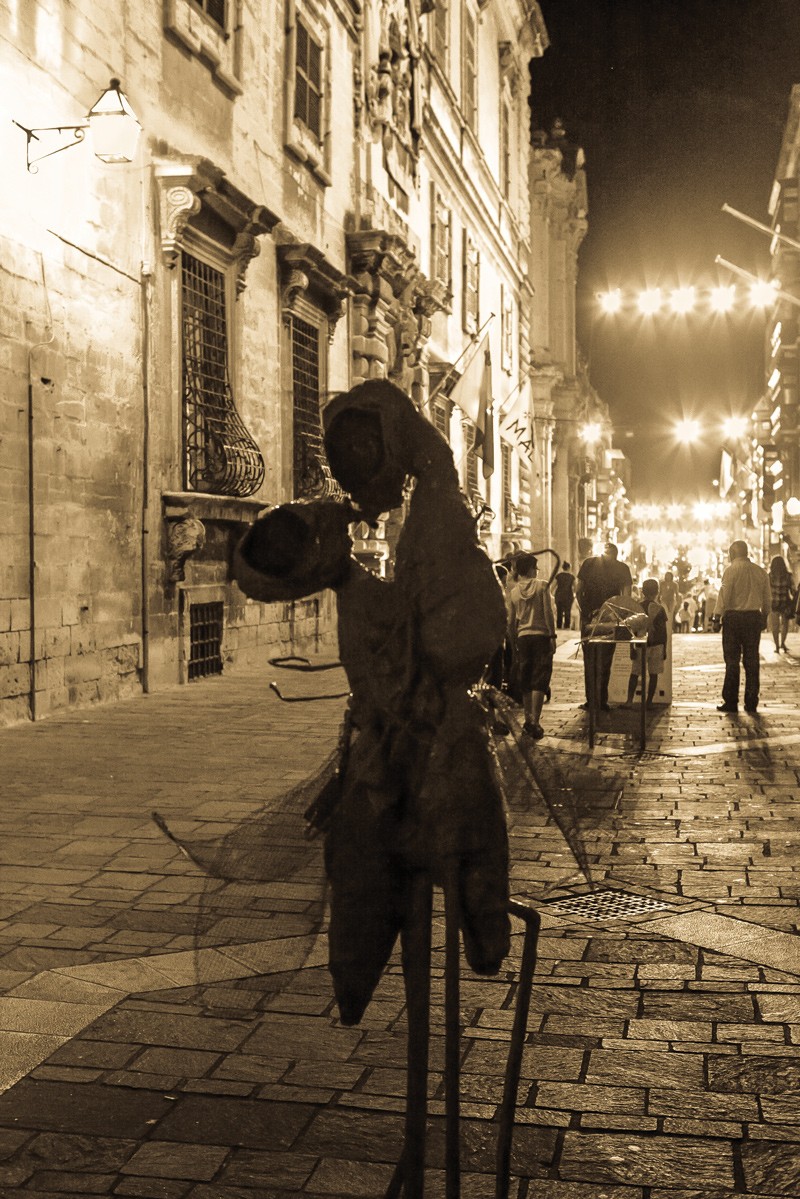Liliana Fleri Soler
Scientists consulted: Dr Edward Duca
Location: Merchant Street,
St James Cavalier, now located in the Biology Department to be permanently exhibited in the new medical wing at the University of Malta
Fruit flies are red-eyed insects usually found circling bananas. They are 2mm pests that devastate and spoil millions worth of crops every year. Due to their similarity to humans, they are used as research subjects. Findings due to fruit flies have taught us humans a lot about ourselves.
Liliana Fleri Soler’s five-foot tall papier-mâché sculptures reflect this similarity in the fly’s complex courtship rituals, which go along these lines. The male sees an ‘attractive’ female and positions himself in front of her at an angle so that he appears bigger. Then, the male goes round and taps the female sending her many signals with his touch. He swivels back in front of her vibrating his wings to ‘sing’ and ‘soothe’ her. The female then allows him to explore her. At this point, he attempts to copulate with her. If she likes him, the two fruit flies mate. As you can see, this ritual is eerily similar to us humans.
Part of Science in the City, Malta’s Science and Arts Festival
For more stories click here





Comments are closed for this article!